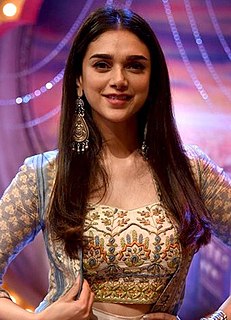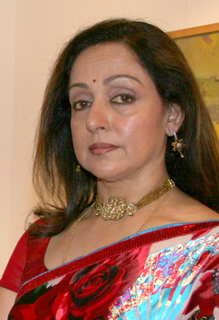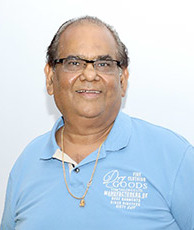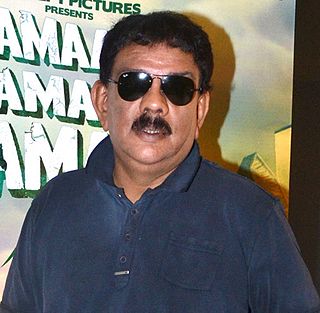A Quote by Dhanush
My dream is to become a director. I want to direct a Hindi film. I have two scripts ready. One of them is a fantasy-adventure, while the other is a thriller. I've assisted my brother Selvaraghavan, who's a well-known director in Tamil cinema. I've also made short films.
Related Quotes
I guess people feel that if you're working with good directors and are known in the Hindi film industry, then you won't work in South films. However, I believe that films have no boundaries of language, religion, or cast. If it's a good script and a good director, I can do a film in Spanish as well.
I remember breaking the news to both my parents that I wanted to be a director, and they both looked very doubtful. They didn't know what a closet Hindi film buff I was. I used to dance to old Hindi films songs on the sly, so my decision to be a part of Hindi cinema was shocking even for my parents.
In Hong Kong, in our generation that started out in the 1970s, being a director wasn't a big deal. We didn't even have director's chairs. We weren't particularly well paid. The social standing of a film director wasn't that high. It was a sort of a plebeian job, a second or third grade one. And the studio heads are always practical, there's never any fawning because someone is a director. There's very little snobbery about one's position as a director. The only ones people treated differently were those that were also stars; or the directors who also owned their companies.
I've had friends who have come away who've said, "I shouldn't have become such close friends with the director." You always want to get on with the director, but I personally prefer a relationship where you respect them - you get on really well with them, but they're boss, as it were. It's about trusting your director, for better or for worse. They're the one's seeing what's coming out on the monitors, so you have to try and trust what they say.
Frankly speaking, I hate comparisons. Two individuals are doing two different films, playing two different characters: how can you compare them? It is not fair to get into ratings. It really doesn't matter what I think about other actresses; what matters is what the directors think of them when they are casting them in a project, because I think it's the director who's behind a successful piece of cinema.
I started my career with her. I was supposed to do my first film in Tamil in which she was the other heroine. The film was titled 'Vennira Aadai.' It was a love triangle, with Jayalalithaaji and I playing the hero's two love interests. But the director Sridhar removed me from the film after a few days' shooting.
I would not have made any of my films or written scripts such as Taxi Driver had it not been for Ingmar Bergman, What he has left is a legacy greater than any other director.... I think the extraordinary thing that Bergman will be remembered for, other than his body of work, was that he probably did more than anyone to make cinema a medium of personal and introspective value.
Before writing a single note of music, and even before the spotting session, I find it best to sit down with the director and just listen to him or her talk about the film - what they're trying to say, what they want the audience to understand or believe, and a thousand other similar questions. The director has most likely been living with the film for years before a composer is attached, and so the director's inclinations, desires, and understanding of the film are paramount.



































